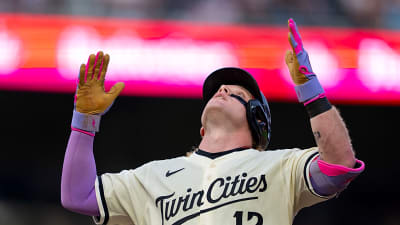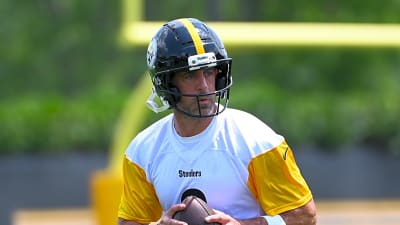
Beau Greaves is already a giant in women’s darts. At just 21, she’s dominated the Women’s Series, picked up major titles, and become a role model whether she likes it or not. But for all she’s achieved, the biggest question still hangs in the air not whether she’s good enough, but whether she wants to make that leap into the PDC ProTour full time.
For now, she’s taking her time — thinking, weighing things up, doing it her way. Because that’s how she’s always done it. But amid recent murmurings, she said she wants to give it a go. “I want to give it a go,” she says of chasing a PDC Tour Card to the Tops and Tales Podcast hosted by Huw Ware. “I’d rather try and fail than look back and think I should’ve done that but didn’t. But sometimes I think, I’m a girl — why can’t I just have a good career in ladies’ darts? Why do I have to push myself because people want to see it on telly?”
It’s not that Greaves doubts her ability, if anything, she’s shown over the last two years that she has more than enough game to compete with the men. But she’s protective of her own space, and fiercely loyal to the women’s circuit that shaped her. “I love it — Lakeside, the Matchplay, the friendships. It’s a different tour completely. I’d miss it loads.”
She’s already dipped her toes into the men's game, playing in the Development and Challenge Tours, and appearing in televised majors like the Grand Slam. But it hasn’t always been comfortable. “I absolutely hated it at first. I didn’t want to be there. It was just the atmosphere, the only lady in the room, a bunch of men. I just didn’t feel comfortable.”
That’s slowly changed. “I’ve started to enjoy it, which is a new thing for me. I feel more relaxed playing the men, weirdly. There’s a different mindset to it.” When she talks about playing men versus women, it’s never about ability — it’s about energy. “There’s less expectation against the men. At the Women’s Series, I go in thinking I’ve got to win — or I should win. But against the men, I’m just out there to play.”
Still, her competitive fire is never far away. “I want to win the Women’s Series titles. If someone plays better, fair play. But yeah, I’ll be annoyed if I don’t win. Especially now that the standard’s getting higher. It used to be a given, but now there’s four, five, six of us that can win titles.”
Greaves is candid about the mental toll of competing at the highest level week in, week out particularly when she’s not enjoying her darts. “When I started struggling with my game, my focus changed. I just wanted to get through games without struggling, even if I didn’t play well. I’d rather that than a win with loads of stress. That’s the thing with darts — if you’re not enjoying it, it’s hard.”
The defeat that hurt the most and darting beginnings
Yet even in defeat, she rarely lingers. “I don’t think there’s a game that’s devastated me. Maybe the Grand Slam, when I lost both group matches 5–4 with darts to win — that hurt. But my dad always says, ‘It’s history now, forget about it.’ That helps. I don’t dwell on it.”
What’s remarkable is how much Greaves has matured without losing her grounded sense of self. That probably stems from how she was raised — and how she came through the game. “I had school and I had darts. I never really did anything else,” she says. “I played pretty much every night. Only recently I’ve taken up golf, and it’s been nice to play something I’m not instantly good at. But back then, it was all darts.” Even at school, despite her early success, it wasn’t a big deal. “People weren’t really bothered, I'd done it since primary school. Some would wind me up a bit, but nothing horrible. My friends knew, but it wasn’t a thing.”
Her relationship with the spotlight has evolved, too. As a child, she was cautious even resistant to the media attention that came with being a prodigy. “I was about ten when it started, there was a certain amount of press after I played that girls' final. And I hated it. My mum and dad wanted me to do it, but I was really shy. I didn’t like the whole facade around it. I’d do it, but I couldn’t be bothered. It just felt like saying the same things over and over.” Now, though, she’s more at ease. “Weirdly, I enjoy it now. I get shy, but I can talk more. It’s just flipped on its head. I get it now — people are interested.”
That growth has played out across her whole personality. “When I was younger, I was cripplingly shy. Teachers thought I was mute! My mum would say, ‘She never shuts up at home!’ But darts helped. Talking to people, doing interviews — it all helped bring me out of my shell.”
There have been bumps along the way. One incident in particular left a mark. “I was about 12, and I took out a finish in a match. The crowd clapped. The woman I was playing hated it — she made a comment to me. I told my dad and he went mad. That stuck with me. I’d never make a young girl feel like that.” That sense of empathy guides her even now. “I try to be respectful. I don’t rub it in. I’ve never had anyone say anything bad to me, and I like the atmosphere at the Women’s Series. It’s friendly. I love it.”
She’s aware of the role she plays in the women’s game not just as a competitor, but as someone younger players look up to. “I just try to be nice. I’ve been the same my whole life. Chatting to people, being kind. I think it comes good in the end.”
But she also sees the bigger picture. The women’s game is growing, but not fast enough. “The Matchplay is great, but that’s kind of it. We have the tour and that’s brilliant but that’s all we’ve got. I’d love to see a proper PDC Women’s World Championship one day. Why not? Yes, sometimes the standard isn’t great but that’s the same in the men’s game too. It’s not going to grow unless you give it the opportunity.”
Emulating Ashton and pushing open doors
If anyone can help push that door open, it’s her and she knows it. “If I got a tour card, I think most of the ladies, 90% of them would want me to do well. A lot of them probably don’t think they’re good enough to do it, but maybe if they see me out there, it changes something.”
As it stands, Beau Greaves has two worlds in front of her: one she’s already conquered, and one that still demands something more. She’s not in a rush to choose. And she doesn’t want to be forced into choosing one over the other.
“When I'm at the Women’s Series, I'm with the girls, with my friends. Lisa Ashton said she missed it when she was on the Pro Tour, and I totally get that.”
Still, you get the sense she’s leaning toward the next challenge, not out of pressure, but out of curiosity. “I do want to push myself,” she says. “I want to see what I can do.”
More must-reads:
- Brewers fall just shy of franchise record in win over Nationals
- Brenden Queen holds off Brent Crews to win ARCA race at Iowa Speedway
- The '250-strikeout MLB seasons' quiz
Breaking News
Trending News
Customize Your Newsletter
 +
+
Get the latest news and rumors, customized to your favorite sports and teams. Emailed daily. Always free!








